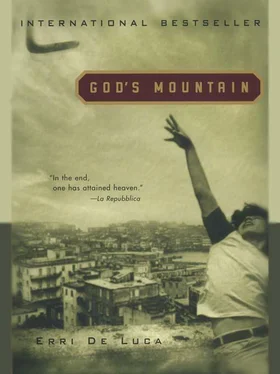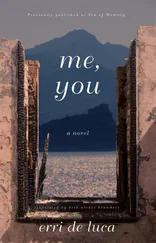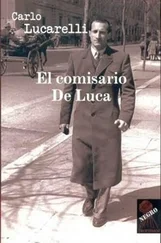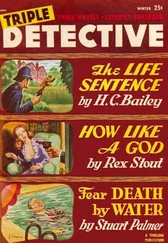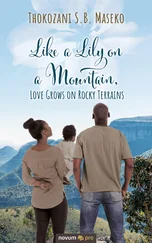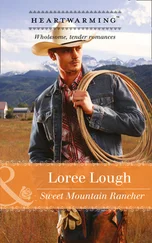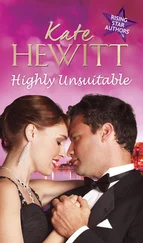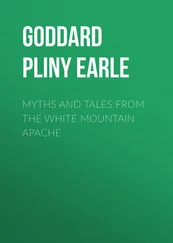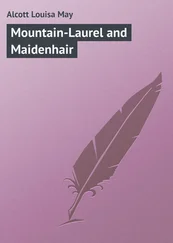PAPA INFORMS me that on Christmas night he’ll be in the hospital with Mama. This disease is something between them. My job is to take care of the house and wait. I’m waiting. For the flight of the boomerang. For it to break away after my shoulders have gone through the motions of throwing it and go hurtling off into the darkness, for it to smack against the stars, against what Maria calls the lid and I call the fishnet. I feel strong enough to throw it into the clouds. The boomerang is getting lighter, getting ready. It won’t be long now. In the meantime Rafaniello is looking more like a bird. He’s getting thin, the bones are poking through the skin of his face. Don Rafaniè, you’ve got to eat. Bread, oil, garlic, and onion aren’t enough. The trip is long and you’re traveling in winter. The other birds have already come and gone. I know, he replies. In his hometown in September he saw the storks join together in the sky to go to Africa. They pass near Jerusalem. “Inside my head the eye of a stork is breaking through to show me the way.” When’s it going to be? I ask. “When the wood of the Ark of the Covenant flies, that is what the angel told me. I’m keeping myself ready for the night of the end of the year. The Neapolitans throw old things out the window. Without realizing it, one of them’s going to throw out a piece of the Ark.” Then he adds, in a birdlike voice, “He’ll throw it out because the Ark no longer holds the tablets of the Law, the Ten Commandments.” He’s right, I think. That night no one will notice Rafaniello’s flight.
I’M STANDING there holding the broom, lost in thought, when Master Errico comes in early and says, “You’re already here? What, you like the job?” Yes, I say, I eat with Don Rafaniello. Master Errico remembers that at home I haven’t got anyone and invites me to his house for lunch to have some hot food. “Tomorrow I’m getting braided mozzarella from Agerola; have you ever tried it, kid? It’s special. Agerola’s high up. The cows there eat poplar leaves. Poplar leaves are what gives the cheese the bitter taste that makes it so special. Do you want to come?” I thank him, but things are all right the way they are. I’m happy to stay in the workshop at lunchtime. “Suit yourself, I’m not going to tell you where to vote,” he says. Master Errico lights his half-smoked cigar and starts up the bench saw. The most he and Rafaniello do is exchange greetings, but they do it properly, purposefully. They respect each other. “Don Rafaniello’s made shoes for all Montedidio. Before, everyone used to go barefoot.” “And you gave me wood to keep warm and a place to sleep. Without you I would have gotten lost in the alleyways by the port.” “With that mop of red hair on your head you couldn’t get lost in ‘na sporta ‘e purtualle, ” in a basketful of oranges, I translate for him.

AT THE workshop Master Errico reads in the newspaper about the man who’s nicknamed The Jinx. One day out of desperation he decides to throw himself from a window and ends up falling on top of some unlucky guy who was passing by that very spot. The passerby dies, and The Jinx breaks two ribs. “Check out the numbers, kid,” he says. “You should play them on the lottery.” In the meantime he goes over to rub the red horn hanging in the doorway to the workshop. Rafaniello mumbles a spell in his language and spits on the ground. We never let superstition into the house. Papa says it’s for women. Mama says it’s a bunch of nonsense and that men are more obsessed by it than women. Master Errico says we’re alive by accident and scrape along by hiding from God. All it takes is one dirty look and we’re done for. Around here no one would ever say “Lucky you” to someone else. People would immediately call you a jinx if something bad happened to the other guy. A man twists his ankle and blames it on the person who wished him good luck. Rafaniello says that in his hometown they say “anóre” for evil eye. He remembers that his mother was beautiful. They even paid her compliments when she was pregnant, and she kept them for herself, she didn’t do anything to exercise the bad luck they bring. That’s why her son was born a hunchback. At home they scolded her. If she had only said “cananóre,” her son would have been born healthy. Nothing causes more damage than an envious eye, Master Errico says.
DON LIBORIO is scared of good-luck wishes, too. For the mid-August holidays he closes his print shop and goes up to the Matese mountains to breathe the air. While loading his suitcase into the taxi on his way to the bus, he runs into Don Ferdinando, the undertaker, who sends him customers for death notices and is also a good friend. He sees the suitcase and says, “Don Libò, have a good trip,” and Don Liborio answers, “Thanks, but I’m not leaving, I just arrived,” and takes his suitcase out of the taxi and goes back home. He left the next day instead. He told the story to Master Errico, who noticed that the print shop was open that evening and wondered why he was still in the city. “What else could I do? How was I supposed to leave with the greetings of the gravedigger?” Then Master Errico put aside the newspaper and ended the talk with a carpenter’s spell. “Saint Joseph, passace ‘a chianozza ”—pass over this talk with a planer.
I TOLD Rafaniello about Maria and the landlord. He stayed quiet for a while, then closed his eyes tight and said, “May you share the fate of the dog who licks the rasp.” His voice was as cold as the north wind. I felt a shiver in my kidneys. What are you saying Don Rafaniè? “A curse,” he answered, but with his own voice again. “I’m saying it, but it’s not mine. It comes through me, into the open. Your story has been heard. That man has been struck by a pellet of hail.” There are many things I don’t understand, including the part about the dog. Don Rafaniè, is it bad that curse about the dog? “It’s bad. The dog licking the rasp is licking his own blood, but his liking for blood is greater than the pain, so he keeps licking till he bleeds to death.” Night has fallen. It’s time to close up. I’ve finished my cleaning so I give Rafaniello a hand straightening out his bench. The sound of bones comes from his hump. He looks up, pushing back the bag with the wings. His round green eyes search the sky for a spot to climb. The city rises upward in walls and balconies. There is no sky overhead. But he finds a way to get his bearings even in this canyon. His head has the same compass as a stork. I roll the gates down and we say good night. He says it’s nice to have wings, but it’s nicer to have good hands for work.
MASTER ERRICO sets the alley spinning with his voice. He’s furious. He’s showing his ugly side. A workman was fixing a cornice on a top-floor balcony. All at once there was a crash in the alley. Master Errico ran out and saw the rubble. He started screaming at the workman that downstairs there were children, people. The guy answered that he had work to do, so Master Errico let his animal out and shouted, “Scinne!” Get down here! Get down here and go home while you’ve still got legs to walk on. Otherwise I’ll come up and break them. He said it in Neapolitan so loud that the whole alley quieted down. The workman saw that the day was taking a turn for the worse and came down. Everyone was looking out the windows and doors and Master Errico stood in the middle of the alley. I came out to sweep up the rubble. “Stand back,” he said. “That guy’s got to do it.” Things were getting serious. “Don’t pay attention to him, Mast’Errì, don’t get all worked up, let the boy do it.” The voice of Don Liborio the typographer calmed Master Errico down. “Come on, let’s have a coffee.” He took his arm and led him up the street. I swept up the rubble and the workman was able to leave.
Читать дальше
